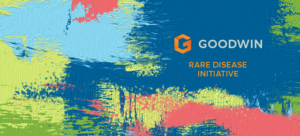 Clinical trial diversity is not a new concept–the U.S. Food and Drug Administration (FDA) issued a draft guidance providing specific recommendations to industry on how to improve diversity in clinical trials in April 2022 which we blogged about here–but the passage of the Food and Drug Omnibus Reform Act, or FDORA, highlighted that the FDA will continue pushing sponsors to make progress on this front. Sponsors of rare disease trials, in particular, know that the act of increasing clinical trial diversity is not an easy undertaking, especially when working with already limited rare disease populations. However, the FDA’s focus on ensuring diversity among trial participants may present new opportunities for designing and executing clinical trials in rare disease indications.
Clinical trial diversity is not a new concept–the U.S. Food and Drug Administration (FDA) issued a draft guidance providing specific recommendations to industry on how to improve diversity in clinical trials in April 2022 which we blogged about here–but the passage of the Food and Drug Omnibus Reform Act, or FDORA, highlighted that the FDA will continue pushing sponsors to make progress on this front. Sponsors of rare disease trials, in particular, know that the act of increasing clinical trial diversity is not an easy undertaking, especially when working with already limited rare disease populations. However, the FDA’s focus on ensuring diversity among trial participants may present new opportunities for designing and executing clinical trials in rare disease indications.
Under FDORA, sponsors of new investigational drugs will be required, unless waived by the FDA, to submit a “diversity action plan” for all Phase 3 clinical trials or, as appropriate, another pivotal study in support of a future marketing application (there is also a similar requirement for sponsors of medical devices where a trial is conducted under an investigational device exemption). Under FDORA, this plan is required to include the sponsor’s goals for enrollment in the study, the rationale for those goals, and an explanation of how the sponsor intends to meet those goals. While FDORA requires these elements to be included and that FDA issue guidance on the form and format of diversity plans, FDORA does not expressly restrict a sponsor from providing additional information with its description of goals. For rare diseases, some education and background on the disease population may be warranted in submission of sponsor diversity plan goals.
Under FDORA, sponsors must submit their plan no later than when they submit their Phase 3 or other pivotal trial protocol, and the FDA has the authority to modify the plan or to waive the requirement for a plan altogether in certain circumstances, such as if conducting a clinical trial in accordance with a diversity action plan would otherwise be impracticable.
During FDA’s Rare Disease Day 2023, agency officials noted that the FDA has long encouraged diversity, including through guidances issued prior to the April 2022 draft guidance, but the passage of FDORA marks the first time that addressing diversity with a prospective plan is a requirement in the development process. With that in mind, speakers pointed out that developing a candidate in a rare indication is all the more reason to develop a strategy to enroll as many eligible patients as possible.
Sponsors in the rare disease space should consider the following strategies to increase diversity in their trials, where feasible:
- Engage advocacy groups and community health groups (early and often), as these groups deeply understand their populations’ specific barriers to research participation and the types of accommodations that should be considered when designing trials to minimize burdens and maximize participation;
- Create more inclusivity at the study design stage, such as by widening eligibility criteria, re-enrolling early phase participants in later phase studies, where possible, or conducting cross-over extension trials, which could make a significant difference in a patient’s willingness to participate;
- Simplify the complexity of trials and minimize burdens to patients to participate, where possible, such as through the use of local laboratories for testing, or consolidating assessments to be done at a smaller number of in-person visits during the trial;
- Adopt as part of the trial design access to telemedicine and technology-driven solutions, which can help promote more inclusiveness with respect to socioeconomic, travel/location, and language barriers; and
- If using a contract research organization, or CRO, partner with a CRO, or other third-party vendor, that can demonstrate experience supporting and achieving diverse population enrollment and a community-first approach.
We anticipate that the FDA’s specific recommendations for sponsors will continue to evolve, as FDORA requires the FDA to issue new draft guidance or update existing draft guidance within 12 months of the enactment of FDORA. At this stage, however, sponsors have an opportunity to propose creative and innovative approaches to designing, recruiting patients for, and conducting their Phase 3 and pivotal clinical trials, even in the rare disease space.
 On October 4, 2024, a US House version of the revised Promising Pathway Act (PPA) 2.0 was introduced, sponsored by Rep. Bruce Westerman (R-AR). The bill (H.R.9938) mirrors a US Senate version that was introduced in May 2024 (S.4426) that would authorize the US Food and Drug Administration (FDA) to grant time-limited conditional approval to drugs for rapidly progressive, terminal diseases with substantial unmet need for treatments that are eligible for the Orphan Drug Act and result in a substantially shortened lifespan, substantial reduction in quality of life, or other substantial adverse health effects.
On October 4, 2024, a US House version of the revised Promising Pathway Act (PPA) 2.0 was introduced, sponsored by Rep. Bruce Westerman (R-AR). The bill (H.R.9938) mirrors a US Senate version that was introduced in May 2024 (S.4426) that would authorize the US Food and Drug Administration (FDA) to grant time-limited conditional approval to drugs for rapidly progressive, terminal diseases with substantial unmet need for treatments that are eligible for the Orphan Drug Act and result in a substantially shortened lifespan, substantial reduction in quality of life, or other substantial adverse health effects. Support Goodwin’s DC Life Sciences Team as they raise money for the National Organization for Rare Disorders (NORD) as part of its “Running for Rare” team at the annual 10K race held during the upcoming DC Marine Corps Marathon on October 27th.
Support Goodwin’s DC Life Sciences Team as they raise money for the National Organization for Rare Disorders (NORD) as part of its “Running for Rare” team at the annual 10K race held during the upcoming DC Marine Corps Marathon on October 27th. In October, NORD will also hold its annual Breakthrough Summit in Washington, DC on October 20-22, 2024. This event draws over 1,000 attendees including patients/caregivers, patient advocacy organizations, and healthcare, biotech, and medical technology companies. Registration is available
In October, NORD will also hold its annual Breakthrough Summit in Washington, DC on October 20-22, 2024. This event draws over 1,000 attendees including patients/caregivers, patient advocacy organizations, and healthcare, biotech, and medical technology companies. Registration is available  Last month, FDA issued a
Last month, FDA issued a  Clinical trial diversity is not a new concept–the U.S. Food and Drug Administration (FDA) issued a
Clinical trial diversity is not a new concept–the U.S. Food and Drug Administration (FDA) issued a 
 In global observance of Rare Disease Day, Goodwin invites you to join us for a special awareness event on March 1, 2023 in our Boston office or virtually for those attending remotely to spotlight the critical work being done to address over 7,000 rare diseases that impact more than 300 million people globally.
In global observance of Rare Disease Day, Goodwin invites you to join us for a special awareness event on March 1, 2023 in our Boston office or virtually for those attending remotely to spotlight the critical work being done to address over 7,000 rare diseases that impact more than 300 million people globally.